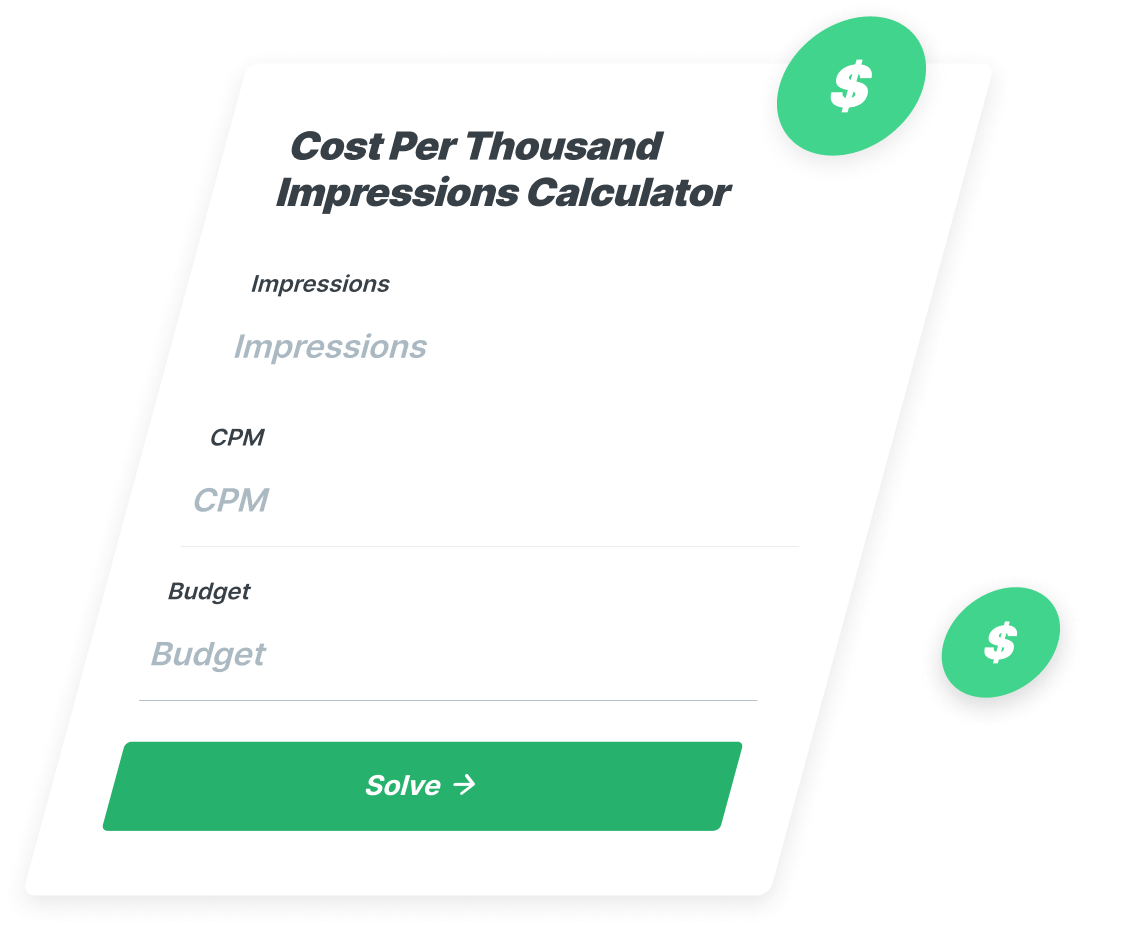-
 Published: Dec 3, 2025
Published: Dec 3, 2025
-
 5 min. read
5 min. read
-
Summarize in ChatGPT
-
 Matthew Gibbons
Matthew Gibbons Senior Data & Tech Writer
Senior Data & Tech Writer
- Matthew Gibbons is a Senior Data & Tech Writer at WebFX, where he strives to help businesses understand niche and complex marketing topics related to SEO, martech, and more. With a B.A. in Professional and Public Writing from Auburn University, he’s written over 1,000 marketing guides and video scripts since joining the company in 2020. In addition to the WebFX blog, you can find his work on SEO.com, Nutshell, TeamAI, and the WebFX YouTube channel. When he’s not pumping out fresh blog posts and articles, he’s usually fueling his Tolkien obsession or working on his latest creative project.
-
What is the difference between self-serve and managed programmatic advertising?
Self-serve programmatic allows you to maintain full control of your ad campaigns in-house, while managed programmatic involves partnering with an agency or freelancer who handles campaign management for you. -
What are the main advantages of self-serve programmatic?
Self-serve programmatic offers more direct control over every campaign aspect, complete transparency into performance, and typically lower base costs since you’re not paying agency fees—though you still need to hire an in-house team. -
Why would a company choose managed programmatic services?
Managed services reduce your workload by having experts handle campaigns, provide access to years of advertising experience and advanced tools you might not afford independently, and typically deliver better results through proven strategies. -
What are the cost considerations for each approach?
While self-serve has lower base costs without agency fees, managed programmatic requires budgeting for both the ads themselves and agency hiring costs—though agencies often provide tools and expertise that justify the higher investment. -
Who is best suited for each programmatic approach?
Self-serve works best for companies with established in-house advertising teams and experts, while managed programmatic is ideal for beginners and companies with smaller or no dedicated advertising teams who need professional guidance.
Self-service programmatic advertising allows you to have full control of your ad campaigns in-house while managed programmatic advertising involves partnering with an agency or freelancer to manage your ad campaigns for you. In the case of self-serve vs. managed programmatic services, there are pros and cons on each side, and you might be wondering which to choose.
On this page, we’ll help you make that decision by breaking down some pros and cons of each option, as well as seeing how they stack up in several key areas. Here’s an outline of what we’ll cover:
- Self-serve vs. managed programmatic services: A comparison
- Self-serve programmatic advertising
- Managed programmatic advertising
- Self-serve vs. managed programmatic FAQs
Self-serve vs. managed programmatic services: A comparison
Before we dive into the specific pros and cons of each option, let’s see how self-serve and managed programmatic advertising compare on a few key points:
| Self-serve programmatic | Managed programmatic | |
| Best For | Companies with in-house advertising teams and experts | Beginners and companies with smaller or no in-house advertising teams |
| Cost | Base cost is typically lower | Base cost is typically higher |
| Time and effort | Requires more time and effort from you | Agency handles the workload for you |
| Tools and resources | Access to fewer tools, and you have to buy them yourself | Access to more tools, which the agency already owns |
| Control and transparency | More control over your campaigns | Amount of control depends on the agency you work with |
| Results | Results vary based on how you manage your campaigns | Experienced agencies typically produce high-quality results |
We’ll explore more of the details in the following sections.
What is self-serve programmatic advertising?
Self-serve programmatic is an approach to programmatic advertising where you handle your campaigns fully in-house. This means you’re either doing it all yourself, or you’re hiring an in-house team to manage your campaigns.
There are several pros and cons to this approach, and we’ll break them down below.
| Pros |
Cons |
|
|
Pros of self-serve programmatic
The main benefit of self-serve programmatic is control. When you handle your ad campaigns in-house, with no outsourcing involved, you have full control over every aspect of your advertising. You also have complete transparency regarding everything happening with your campaigns.
The other major benefit is that a self-serve approach is often less expensive, at least in terms of the base cost. When you work with an agency, you have to pay to hire them in addition to paying for the ads themselves. Of course, you would also have to pay to hire an in-house team, but agencies typically cost more.
Cons of self-serve programmatic
One of the biggest issues with the self-serve approach is that you have to set up everything yourself. You have to handle the workload of hiring a team and setting up your demand-side platform (DSP), and then you have to continue managing the ongoing task of creating your ads and bidding on ad space.
Also, when you handle your campaigns in-house, you’re relying solely on your own expertise. If you aren’t experienced with programmatic advertising, and you’re not certain of the best strategy to use, you’re more likely to make mistakes that end up costing you a lot of money. That can be avoided with an experienced agency.
What is managed programmatic advertising?
Managed programmatic advertising is where you partner with a professional advertising agency to run your campaigns. The agency handles the workload for you, using their expertise to drive results that you might not otherwise achieve. Here are some of the biggest benefits and drawbacks to this approach.
| Pros | Cons |
|
|
Pros of managed programmatic
One of the most substantial benefits of managed programmatic services is that they reduce your workload. Instead of having to do everything yourself, you can sit back and let the agency run your campaigns for you. You’re still in control of how they manage your ads, but the actual work is off your shoulders.
Another major plus is the fact that agencies have years of experience with paid advertising. They know exactly which tactics will earn you the best results for the lowest cost, and they can use their knowledge to drive more revenue for your business. If you’re not an advertising expert yourself, you might not be able to achieve those same results on your own.
Finally, many agencies have access to advanced advertising tools that you might not be able to get your hands on by yourself — at least, not without spending a ton of money to buy them. That means you often get better resources with a managed strategy.
Cons of managed programmatic
The most obvious drawback to using a managed programmatic approach is that hiring an agency costs money. So, in addition to budgeting for the ads themselves, you also have to budget for the cost of hiring the agency.
Additionally, working with an agency is a much more hands-off process. Since you’re not directly managing the campaigns, you may have less control over how they’re being run, and possibly less transparency regarding what’s happening with them.
That said, the exact level of control and transparency depends on the agency — some agencies will be great about giving you full control over what they do and keeping you constantly updated.
Here are the answers to a few common questions about self-serve and managed programmatic advertising. Self-serve programmatic is a form of programmatic advertising that you handle fully in-house. Typically, you hire an internal team to run your programmatic campaigns, giving you full control over them. Managed programmatic is a form of programmatic advertising where you hire an outside agency to run your campaigns for you. This gives you access to better expertise and resources, and frees you from the workload of doing it all yourself. Yes — you can use a hybrid approach, outsourcing certain aspects of your programmatic campaigns to external agencies while handling other parts in-house. However, this can sometimes be complicated to set up, so you’ll have to decide if it’s worth the effort. For many businesses, it’s easier to just go fully self-serve or fully managed. The answer to this question really just depends on your priorities. If it’s really important to you to have full control over the process, you might want to opt for a self-serve approach. That’s especially true if you feel confident in your programmatic advertising prowess and you’re willing to handle the workload yourself. But if you’re concerned that you don’t have the necessary time or expertise to manage your campaigns on your own, a managed approach might be better. And if you choose the right agency, you won’t even have to worry about giving up control over your campaigns, because they’ll keep you in the loop about everything they do. At the end of the day, though, only you can know which choice is right for your business.Self-serve vs. managed programmatic FAQs
What is self-serve programmatic?
What is managed programmatic?
Can you merge self-serve and programmatic?
Should you choose self-serve or managed programmatic advertising?
Manage your programmatic ads with help from the experts at WebFX
If you’re trying to decide between self-serve vs. managed programmatic services, you may end up deciding that an agency is the right choice for you. In that case, it’s crucial to pick an agency that has a lot of advertising experience. That’s where WebFX comes in.
We’ve been driving ad revenue for our clients for 30 years, and we know exactly which tactics produce the best results in the world of programmatic advertising. We’ll handle the full workload for you, but rest assured — you’ll still have full control over your campaigns, and we’ll update you regularly on how your ads are performing.
Interested in partnering with us for our programmatic advertising services? Just give us a call at 888-601-5359 or contact us online today!
-
 Matthew Gibbons is a Senior Data & Tech Writer at WebFX, where he strives to help businesses understand niche and complex marketing topics related to SEO, martech, and more. With a B.A. in Professional and Public Writing from Auburn University, he’s written over 1,000 marketing guides and video scripts since joining the company in 2020. In addition to the WebFX blog, you can find his work on SEO.com, Nutshell, TeamAI, and the WebFX YouTube channel. When he’s not pumping out fresh blog posts and articles, he’s usually fueling his Tolkien obsession or working on his latest creative project.
Matthew Gibbons is a Senior Data & Tech Writer at WebFX, where he strives to help businesses understand niche and complex marketing topics related to SEO, martech, and more. With a B.A. in Professional and Public Writing from Auburn University, he’s written over 1,000 marketing guides and video scripts since joining the company in 2020. In addition to the WebFX blog, you can find his work on SEO.com, Nutshell, TeamAI, and the WebFX YouTube channel. When he’s not pumping out fresh blog posts and articles, he’s usually fueling his Tolkien obsession or working on his latest creative project. -

WebFX is a full-service marketing agency with 1,100+ client reviews and a 4.9-star rating on Clutch! Find out how our expert team and revenue-accelerating tech can drive results for you! Learn more
Cost Per Click (CPC) Calculator
Do you advertise on platforms that charge per click? Use our calculator and figure out exactly how many clicks will fit within your budget.
Calculate Your CPC
Unlock the Potential of PPC for Your Business
See how WebFX helped another company increase quote requests from paid search.
See How We Did It
Proven Marketing Strategies
Cost Per Click (CPC) Calculator
Do you advertise on platforms that charge per click? Use our calculator and figure out exactly how many clicks will fit within your budget.
Calculate Your CPC
What to read next




